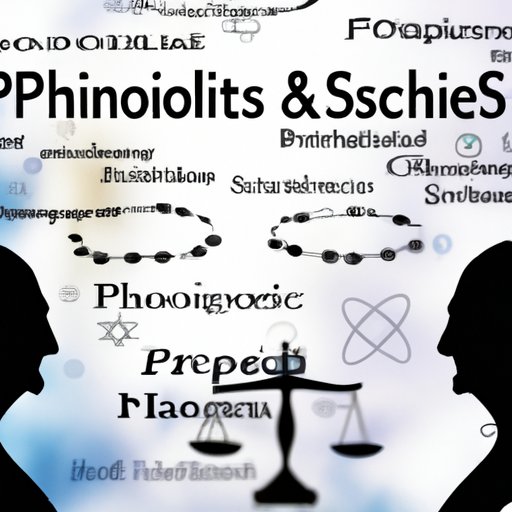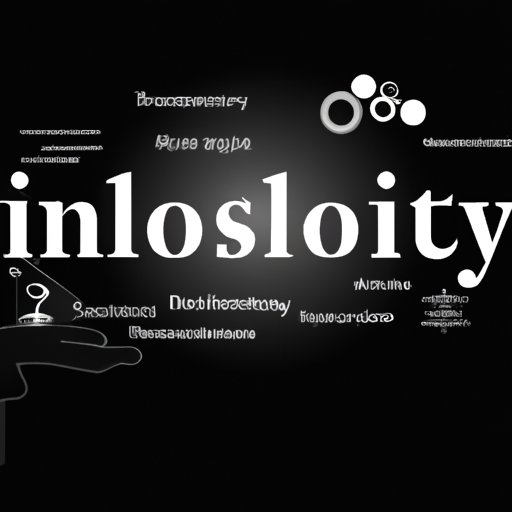Introduction
Science and philosophy are two disciplines that have been around for centuries and have shaped the way humans think about and interact with the world. While these two fields may seem vastly different, there is an undeniable link between them. This article explores the relationship between science and philosophy, examining how each field has informed and impacted the other over time.

Examining the Relationship between Science and Philosophy
The history of interactions between science and philosophy dates back to ancient times. In ancient Greece, for example, philosophy was closely linked to science and mathematics, and many of the great philosophers were also scientists and mathematicians. The natural philosopher Aristotle, for example, wrote extensively on topics such as biology, astronomy, and physics.
In the 17th century, the advent of the scientific revolution marked a major shift in the way science and philosophy interacted. During this period, scientific discoveries began to challenge traditional philosophical ideas and theories. For example, the astronomer Galileo Galilei used his observations of the night sky to argue against the Aristotelian view that the Earth was the center of the universe. Similarly, Isaac Newton’s laws of motion and gravity challenged traditional philosophical notions of causality.
The influence of scientific discoveries on philosophical ideas continued throughout the 19th and 20th centuries. In the 19th century, Charles Darwin’s theory of evolution by natural selection had a profound impact on philosophical debates about the nature of life and the origin of species. Likewise, Albert Einstein’s theories of relativity revolutionized philosophical discussions about the nature of space and time.
Exploring the Intersection of Science and Philosophy
One of the most important ways in which science and philosophy intersect is in their shared use of the scientific method. Philosophical inquiry often relies heavily on empirical evidence and rational argumentation, both of which are key components of the scientific method. Thus, science can be used to support or refute philosophical arguments and theories.
In addition, science can inform philosophical thinking in other ways. For instance, advances in scientific knowledge can lead to new philosophical questions and debates. In the 19th century, for example, Darwin’s theory of evolution sparked a philosophical debate about the role of chance in the development of life. Likewise, advances in quantum mechanics and cosmology in the 20th century led to philosophical discussions about the nature of reality and the existence of God.

Understanding the Contributions of Science and Philosophy to Human Knowledge
The synthesis of science and philosophy has resulted in a deeper understanding of the world and our place in it. By combining empirical evidence and rational argumentation, science and philosophy have enabled humans to answer some of the most fundamental questions about the nature of reality and our place in it. As such, science and philosophy are both essential tools in the pursuit of knowledge.
Advances in science and technology have also had a profound effect on philosophical thinking. In the past few decades, technological breakthroughs such as artificial intelligence and robotics have led to new philosophical debates about the nature of consciousness and free will. Similarly, developments in biotechnology have raised questions about the ethical implications of manipulating the human genome.
Conclusion
In conclusion, science and philosophy have a long and intertwined history. They share a common goal of understanding the world and our place in it, and each field has informed and impacted the other over time. From the scientific revolution to the present day, advances in scientific knowledge have shaped philosophical thinking and vice versa. By synthesizing science and philosophy, humans can gain a better understanding of the world and our place in it.
(Note: Is this article not meeting your expectations? Do you have knowledge or insights to share? Unlock new opportunities and expand your reach by joining our authors team. Click Registration to join us and share your expertise with our readers.)
